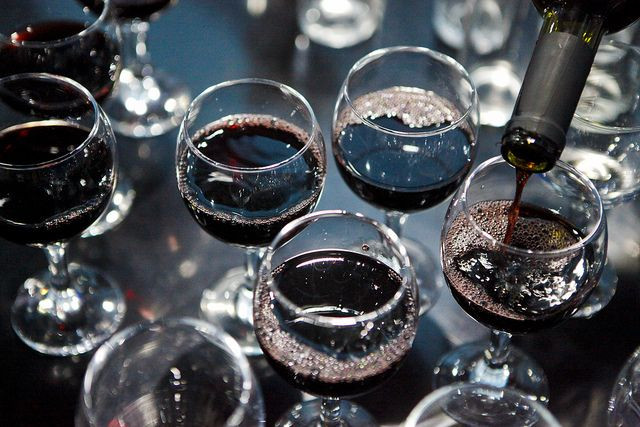Resveratrol, A Compound In Red Wine, May Slow Alzheimer's Disease Progression

Red wine has been widely debated as both beneficial and detrimental to certain aspects of our daily lives — more specifically, resveratrol (found in red wine) is the compound responsible for having either positive or negative effect. It can help with bowel cancer, but only in small doses. It may reverse the benefits of exercise, but those studies might not be reliable. It can be the gift that keeps on giving, but not everyone loves wine or grapes. Now researchers are finding that with all its benefits and detriments, resveratrol may also help slow a disease that has yet to be stopped: Alzheimer’s.
In what the authors describe as the largest and longest study of resveratrol in people with mild to moderate Alzheimer’s disease, a study published in Neurology reveals that resveratrol, which can be found in dark chocolate as well as the aforementioned wine and grapes, can be used to keep Alzheimer’s from progressing.
Dr. R. Scott Turner, professor of neurology and director of the memory disorders program at Georgetown University Medical Center and his team created a purified form of resveratrol for use in their study of 119 men and women with mild to moderate Alzheimer’s disease. They gave half the participants 1,000 mg of resveratrol daily, while giving a placebo to the other half for a year. At the end of the year, Turner and his team compared participants’ scores on cognitive tests and assessments based on how independent they were when living their lives from the start of the study.
“My nightmare was that nothing would be different from the placebo group, and there would be nothing of interest to talk about,” Barnes told Time. “But that did not happen. I think resveratrol is an engaging target that’s very interesting and could be pharmacologically manipulated to develop a treatment.”
The group that got the daily dose of resveratrol showed no change in the levels of protein build-up that normally occurs in Alzheimer’s patients. After measuring the protein in spinal fluid and blood, Turner and his team found these levels were unchanged over the course of a year as well. The resveratrol group also showed less brain volume, which is a good sign for Alzheimer’s patients, since the disease can cause inflammation and swelling that interferes with nerve connections.
One of the most encouraging aspects of the study was the resveratrol groups showed improvements in their daily independent living, like getting dressed and bathing themselves.
Though Turner couldn’t state just how the resveratrol was affecting the Alzheimer process, he said that Alzheimer patients shouldn’t chug a bottle of red wine every night in hopes of slowing the disease. Since the resveratrol compound used in the study was extremely concentrated, it would take 1,000 bottles of red wine to feel the same effects.
“We need more studies to see if [resveratrol] really does have benefit,” Barnes said, “and then it could be turned into more effective drugs that can better target Alzheimer’s.”
Source: Turner, R, et al. A randomized, double-blind, placebo-controlled trial of resveratrol for Alzheimer disease. Neurology. 2015.



























